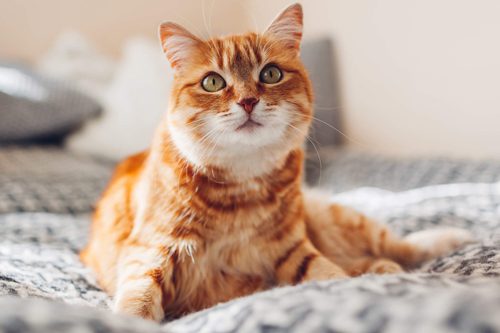Symptoms of Hyperthyroidism in Cats

When our cats aren’t feeling well, it can be a worrying time for any pet owner. Understanding what signs to look for can help us take the best care of our beloved pets. Today, we’re diving into a common condition in older cats: hyperthyroidism. Let’s look at the symptoms of hyperthyroidism in cats and help you to better understand this condition. If you notice any of these symptoms in your cat, we encourage you to reach out to West Loop Veterinary Care in Chicago, IL. You can call us at our West Loop location at (312) 421-2275 or our Streeterville location at (312) 766-5959. Our team is ready to provide your cat with the care they need.
Understanding Hyperthyroidism in Cats
Hyperthyroidism is a condition where a cat’s thyroid glands produce too much thyroid hormone. This can lead to several health issues, affecting almost every organ in their body. Before we talk about the symptoms, let’s understand a bit about what hyperthyroidism does to your cat.
What Causes Hyperthyroidism?
While the exact cause of hyperthyroidism in cats is not well understood, it is most commonly seen in middle-aged to older cats. The overproduction of thyroid hormone can increase your cat’s metabolism, leading to various symptoms.
Spotting the Symptoms
Identifying the signs of hyperthyroidism early can make a big difference in your cat’s health. Here are the key symptoms to watch out for:
Increased Appetite and Weight Loss
One of the most noticeable symptoms is an increase in appetite. Your cat might seem hungrier than usual but still loses weight. This happens because their metabolism is working overtime.
Increased Thirst and Urination
You might notice your cat drinking more water and using the litter box more often. This is another sign that something might be off with their health.
High Blood Pressure
Hyperthyroidism can lead to high blood pressure, which can cause further complications if not treated. This isn’t something you can spot easily at home, but it’s a reason to take regular vet visits seriously.
Vomiting and Diarrhea
With their body in overdrive, some cats may experience digestive issues like vomiting and diarrhea. While these can be symptoms of many conditions, combined with other signs, they can indicate hyperthyroidism.
Hyperactivity
An overproduction of thyroid hormone can make your cat seem more active or restless than normal. If your older cat is suddenly acting like a kitten again, it might be time for a vet visit.
Poor Coat Condition
Another symptom to look out for is changes in your cat’s fur. It might become greasy, matted, or unkempt, which is unusual for cats, especially those that are normally fastidious groomers.
Diagnosing and Treating Hyperthyroidism
If you’ve noticed any of these symptoms, it’s important to contact West Loop Veterinary Care. While we don’t offer medical advice or in-home treatments through this blog, our trained professionals at West Loop or Streeterville locations can diagnose and discuss treatment options for your cat. Treatment can vary from medication to dietary changes, and in some cases, surgery or radioactive iodine therapy might be recommended.
The Importance of Early Detection
Catching hyperthyroidism early can help manage the condition more effectively. Regular vet check-ups play a crucial role in detecting this and other health issues before they become more serious.
Call West Loop Veterinary Care for an Appointment
If you’re concerned your cat may be showing symptoms of hyperthyroidism, or if it’s just time for their regular check-up, don’t wait. Call West Loop Veterinary Care in Chicago, IL, at our West Loop location (312) 421-2275 or Streeterville location (312) 766-5959. Our team is here to answer your questions and provide the care your cat needs.
This blog aims to educate pet owners about the symptoms of hyperthyroidism in cats, a common condition that can significantly impact their health. By understanding what to look for, you can take proactive steps in caring for your pet. Remember, early detection and professional veterinary care are key to managing this condition. Let’s work together to keep your cat healthy and happy.
West Loop:
(312) 421-2275
Streeterville:
(312) 766-5959
